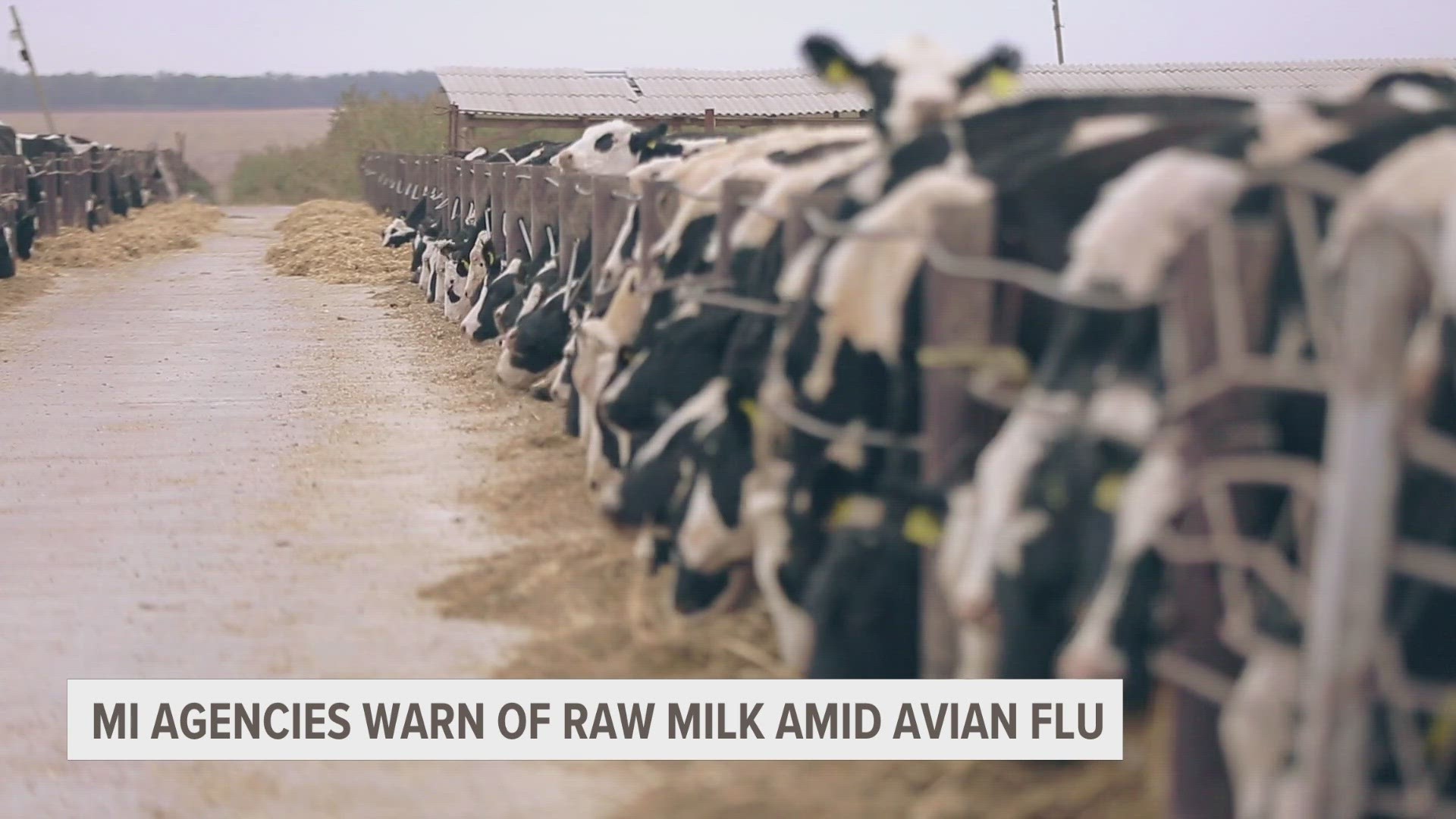MOUNT PLEASANT, Mich. — Jerry Neyer, a republican, represents Michigan's 92nd house district. When he's not in Lansing serving on the house's agriculture committee, he's in Mount Pleasant, helping run the family's dairy farm.
"I have enjoyed it very much moving into the legislature was a very difficult decision," said Neyer. "But we need people down there that have agriculture and rural experience."
Right now, his experience in being a second-generation dairy farmer may be needed as the state sees an increase in Avian flu cases in both dairy cattle and poultry.
Herds in Montcalm, Ionia, Isabella and Ottawa counties have tested positive for the virus, as well as poultry flocks in Newaygo and Ionia counties.
"We don't have any details to really make a good judgment call. I believe the procedures that MDARD (Michigan Department of Agriculture and Rural Development) has instituted right now will keep the food supply safe, keep the cattle and the poultry safe as relatively possible."
What does this mean for consumers? Well, sick dairy cattle are separated from the herd that produces milk. The milk from the separated cattle doesn't get mixed with the milk that goes to market.
If any were to, however, Rep. Neyer said viruses wouldn't be able to survive the processes in the dairy plant.
"Not only is the check there for antibiotics, it's also checked for bacteria and viruses," said Neyer. "And then the final thing that happens and the most important thing is that it's pasteurized, which will kill off all your unwanted bacteria and also all your unwanted viruses and that way the milk is safe to drink."
And although cows aren't in danger of dying from the virus, the lawmaker and dairy farmer said, it would be taxing to take a cow out of the production line in an already difficult market.
"If you lose a cow out of production, or a handful of cattle out of production that affects that affects your bottom line pretty quick," said Neyer. "You're not getting paid for that, for that milk that is lost in production."
►Make it easy to keep up to date with more stories like this. Download the 13 ON YOUR SIDE app now.
Have a news tip? Email news@13onyourside.com, visit our Facebook page or Twitter. Subscribe to our YouTube channel.
Watch 13 ON YOUR SIDE for free on Roku, Amazon Fire TV Stick, Apple TV and on your phone.

